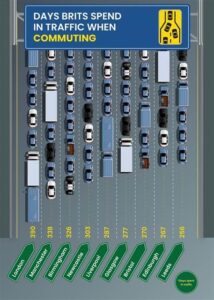What Sections Belong in a CV?

If you are ready to begin your job hunt, you no doubt need to build a CV.
But you may wonder – what sections should I include in my CV? Because variations and customization abound, you may wonder what is necessary and what is optional. Could any CV sections actually hurt your chances of getting a job?
Let’s find out.
Basic CV Sections
The following sections should be included in every CV.
Contact Information
Your recruiter wants to get to know who you are, and they need to be able to contact you. Include your first and last name, a phone number, and a professional email address. Keep your email address simple, following a formula such as [email protected].
You can include your mailing address if you want, but this is no longer a necessity. You may also include a link to your LinkedIn profile.
Work Experience
Work experience is at the heart of every CV. Your work experience entries should contain basic details like your position title, the name of the company, the location, and dates worked. It should also contain a bullet point description of your duties and responsibilities.
Use this description to include position-relevant keywords. Also include notice of major achievements. If numerical data or statistics (for example, “Increased sales by 25 per cent) make sense, use them.
Education
Make note of each degree, the school, grade point average, and date of graduation. If you have university degrees, there is no need to include your secondary school diploma.
Skills
Not every CV contains a skills section, but many do (especially combination format CVs). You can list your skills in bullet point format. You can also enhance each entry with a brief description, highlighting how your skills apply to your position or special achievements from the past.
Optional CV Sections
For some optional CV sections, their benefits are a given. If you are listing additional certifications, languages you speak, papers you have published, or honours and awards you have received, there is little chance of these producing a negative response.
However, there are optional sections that should be used with caution. We will discuss these below.
Photo
Including a photo on your CV may be the thing to do in continental Europe, but not in the UK. Recruiters prefer that you focus on your experience, skills, and achievements.
Exceptions do exist, however. Those in careers such as modelling or acting may be required to submit a photo.
Hobbies
Hobbies can be a tricky optional section to deal with. Including the right hobbies can demonstrate key skills and personal qualities. Include the wrong hobbies and your CV might end up in the dustbin.
Good hobbies to include are those that relate directly to your career or that highlight transferable skills. For example, if you have a hobby of building computers or computer coding, this represents a trove of technical ability that could be useful in many job situations.
Other hobbies might indicate more general qualities such as a good work ethic, dedication, problem-solving, or critical thinking.
Think twice, though, if your hobbies suggest not beneficial skills. Including such hobbies could make you look immature or childish in the eyes of your recruiter. Worse still, some hobbies are controversial. Don’t include anything that might be viewed as inappropriate, of questionable legality, or that goes against the mission or values of the company.
References
In the UK, a list of references with contact information is not mandatory. If the job listing requires references, include them.
If not, leave them out of your CV but have a list of references – including their contact information – handy in case your recruiter asks for references. You can get permission from your references in advance and keep a copy of your references list saved on your computer.
Key Takeaways
- Every CV should include your contact information, education, and work experience.
- Optional sections can enhance your CV by demonstrating more about your qualifications. Important potential sections include Awards and Honours, Publications, Skills, Projects, Achievements, or Certificates and Courses.
- Some optional sections, such as Hobbies and Interests, should be used sparingly.
- Include references only if requested.
- It is usually not necessary to include a photo on your CV.
Author Bio:
Susan Noel is an experienced content writer. She is associated with many renowned business and technology blogs as a guest author where she shares her valuable articles with the audience.




